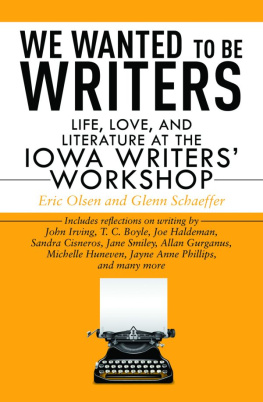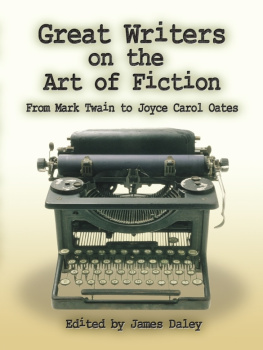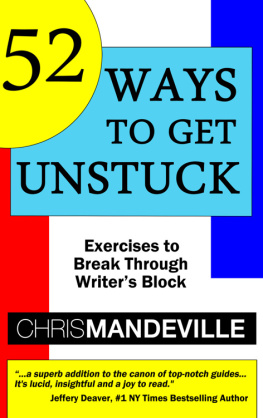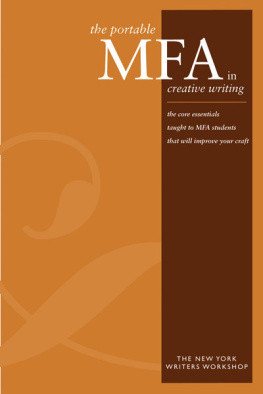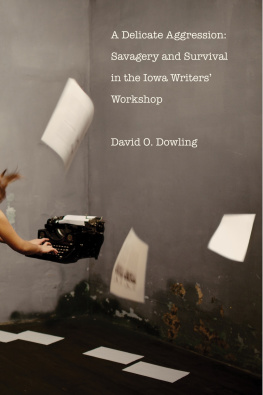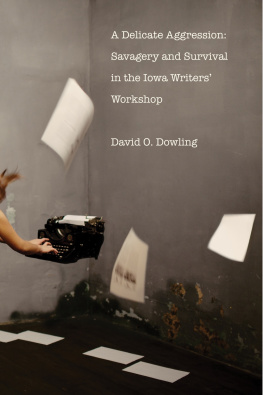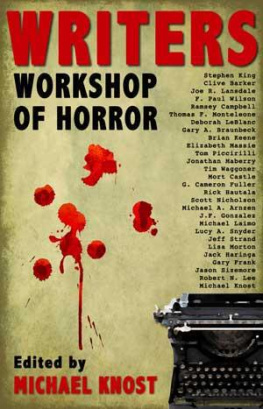
WE
WANTED
TO BE
WRITERS
LIFE, LOVE, AND LITERATURE
AT THE IOWA WRITERS WORKSHOP
Eric Olsen
and
Glenn Schaeffer

Skyhorse Publishing
A Herman Graf Book
Copyright 2011 by Eric Olsen and Glenn Schaeffer
All Rights Reserved. No part of this book may be reproduced in any manner without the express written consent of the publisher, except in the case of brief excerpts in critical reviews or articles. All inquiries should be addressed to Skyhorse Publishing, 307 West 36th Street, 11th Floor, New York, NY 10018.
Skyhorse Publishing books may be purchased in bulk at special discounts for sales promotion, corporate gifts, fund-raising, or educational purposes. Special editions can also be created to specifications. For details, contact the Special Sales Department, Skyhorse Publishing, 307 West 36th Street, 11th Floor, New York, NY 10018 or info@skyhorsepublishing.com.
Skyhorse and Skyhorse Publishing are registered trademarks of Skyhorse Publishing, Inc., a Delaware corporation.
www.skyhorsepublishing.com
10 9 8 7 6 5 4 3 2 1
Library of Congress Cataloging-in-Publication Data available on file.
ISBN: 978-1-60239-735-4
The Book of the Dead Man (The Writers) appeared originally in Fiddlehead and is collected in Vertigo: The Living Dead Man Poems, Copper Canyon Press, copyright 2011 by Marvin Bell.
Printed in Canada
CONTENTS
EDITORS NOTE
by Eric Olsen
V ance Bourjaily, one of our teachers when Glenn and I were in the Workshop, once informed our class that if you were a nice person, you should never write in the first person, unless you were prepared to be an unreliable first-person narrator. But Schaeffers a pretty decent guy and what he has to say in Chapter 1 is pretty reliable, I think, so there must be exceptions to Vances rule.
Chapters 2 through 7 are made up of the conversations in which those we interviewed speak for themselves, but in the introduction to each chapter, and then here and there throughout each chapter, we interrupt with brief narratives, by way of setting the stage, as it were. In these comments, we lapse into a sort of editorial we, referring to ourselves by name, in the third person, when warranted. Sometimes, that we encompasses the entire group of classmates and faculty we interviewed. We realize that we probably ought not to speak for the others, some of whom have rather emphatically pointed this out, so we hope well be forgiven for this presumption. And now and then the we broadens further to encompass writers and artists in general, still more creative license for which we hope well be forgiven. I wont go near the question of our niceness or reliability in these chapters.
ACKNOWLEDGMENTS
T his book wouldnt have been possible without the generous involvement of everyone we interviewed, all of whom tolerated an excess of pesky questions and impositions on their time with good humor, and for that, we thank them wholeheartedly. Wed also like to thank Dave Hickey for his good suggestions about structure and organization; Connie Brothers for her patience and continuing support of this project; Kathy Girsch, a blessedly enthusiastic reader during the books vulnerable early stages; Michael Buell, who had the inflated confidence in Olsens writing to save his correspondence from Olsens Iowa days, a valuable aid to Olsens somewhat porous memory; Dennis Mathis, whose close reading of the final manuscript has saved us from multiple embarrassments; and finally, Cheryl who helped with the interviews and then read, and reread, and then re-reread and indexed the manuscript, giving it cohesion and some semblance of order. Thank you all, thank you, thank you.
Against the disease of writing, one must take
special precautions, since it is a dangerous
and contagious disease.
Peter Abelard, 10791142

Many suffer from the incurable disease of
writing, and it becomes chronic in their sick
minds.
Juvenal, first century CE
INTRODUCTION:
AIDING AND ABETTING
Bill Manhire
International Institute of Modern Letters
Victoria University of Wellington, New Zealand
T he creative writing workshop can be a troubled and contentious place. Flannery OConnor graduated from Iowa back in 1947, some years before Messrs Olsen and Schaeffer were bornand she is name-checked several times in this book. Yet it was she who said, I am often asked if universities stifle writers. My view is that they dont stifle enough of them. Im told that if you say the words Nelson Algren aloud in certain forums, any Iowa graduates present will shift uncomfortably. Thats to say, there are people who despise creative writing workshops, and they will hate this book on principle.
But what creative writing workshops offer is not an Iowa invention. If its the practice of offering advice to aspiring writers thats at issue, you can track back through the Western tradition to rhetoricians like Geoffrey de Vinsauf and Aelius Theon. Or you can go somewhere else altogether. Kiribati, for instance.
Kiribati is a Pacific archipelagoone of those tiny island states that global warming may soon consign to the depths. It was once a British colony: the Gilbert and Ellice Islands. (Kiribati, pronounced Kiribass, is a transliteration of Gilberts.) If you had gone there some ninety years ago, you might have bumped into the British colonial servant Arthur Grimble, and he might have introduced you to the poets of the place. The Kiribati poets lived ordinary, real-world lives, though in everything they did, they aimed to be exceptional. According to Grimbles good friend Taata, a poet ought to excel friends and family in the everyday labors of fishing, farming, and building: Only by becoming a recognized master of the island crafts can he win reverence for his art.
But from time to time on Kiribati, as elsewhere, the need to create a poem is felt. It is then, as Taata told Grimble, that a poet abandons farming and fishing. He takes himself off to the loneliest of places, somewhere he can fast and avoid contact with others. He then marks out a large square on the ground, with a good view to the east, and sits for a whole night there in his house of song, awaiting the dawn. After addressing the rising sun in a ritual incantation, he returns to his village, where he chooses five friends and brings them back to the composing place.
Now listen to what happens:
Without further preamble, he begins to recite the rough draft of his poem, which he has ruminated overnight. It is the business of his friends to interrupt, criticise, interject suggestions, applaud, or howl down, according to their taste. Very often they do howl him down, too, for they are themselves poets. On the other hand, if the poem, in their opinion, shows beauty they are indefatigable in abetting its perfection. They will remain without food or drink under the pitiless sun until night falls, searching for the right word, the balance, the music that will convert it into a finished work of art.
When all their wit and wisdom has been poured out upon him, they depart. He remains alone againprobably for several daysto reflect upon their advice, accept, reject, accommodate, improve, as his genius dictates. The responsibility for the completed song will be entirely his.
Probably this practice was centuries old when Grimble encountered it. It sounds to me like the ideal creative writing workshop. Inspiration is acknowledged: a writer begins to work on a text that truly matters to himthat has come to him perhaps because he has put himself in the way of it. Yet eventually, and in a formal situation, he offers it to sympathetic fellow writers for close reading and advice. They respond, offering their points of view while trying to wed their comments to the intentions they sense in the piece of writing. The writer chooses the advice he finds helpful, doing so on behalf of the completed composition, for which he takes personal responsibility. Grimbles wording, abetting perfection, holds, toothough maybe aiding and abetting would be even better. In a workshop, everyones an accomplice.
Next page
